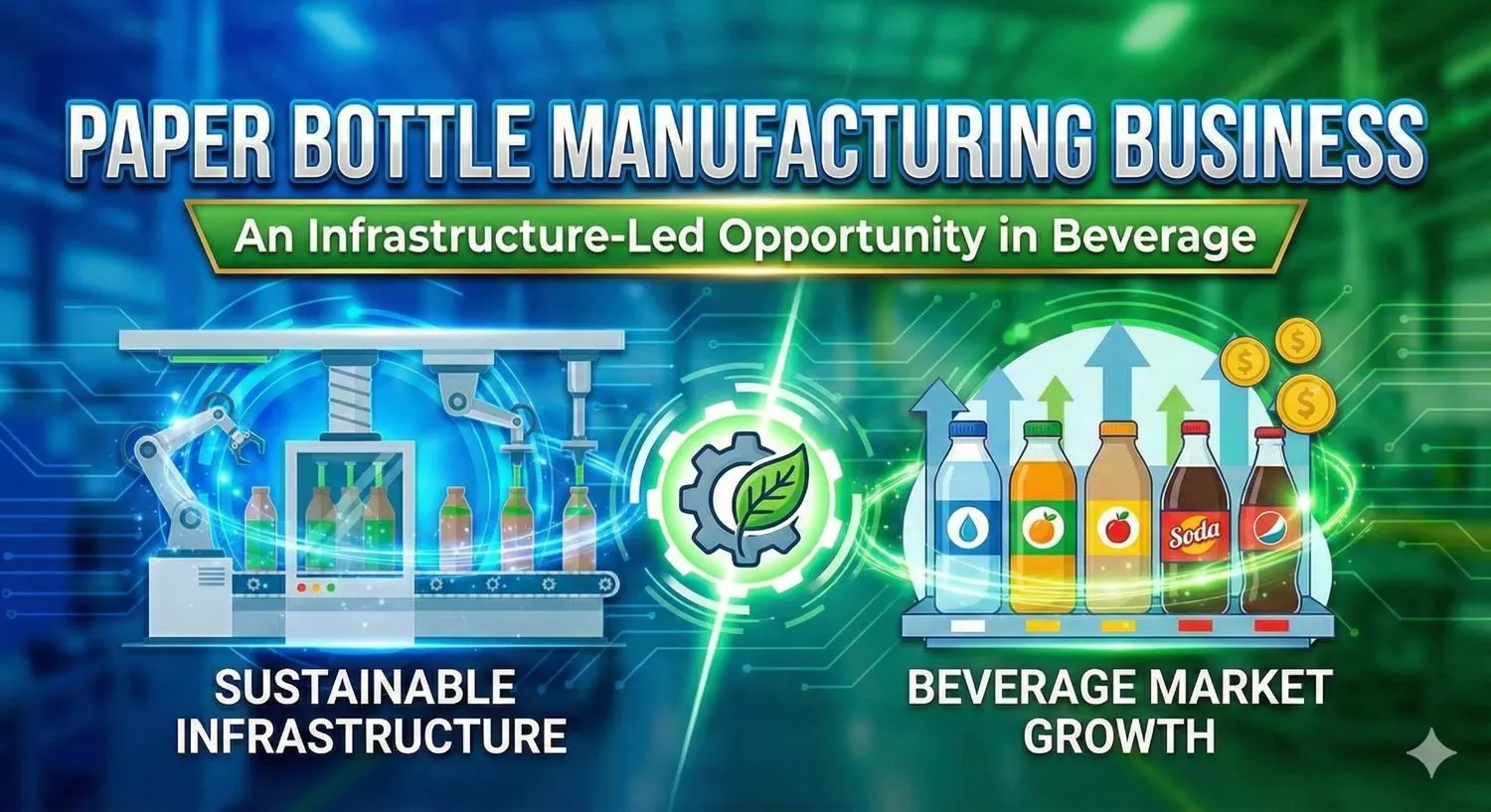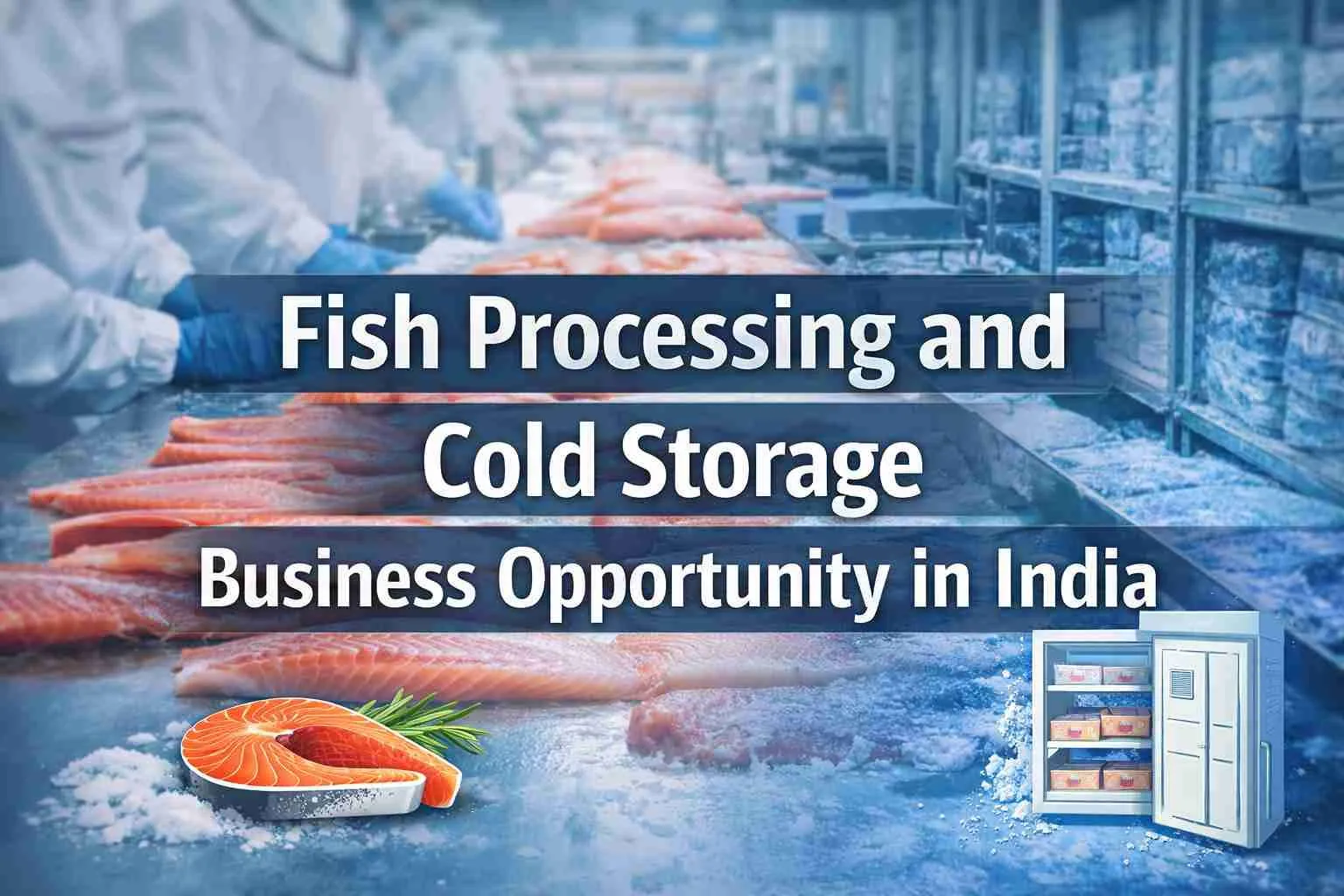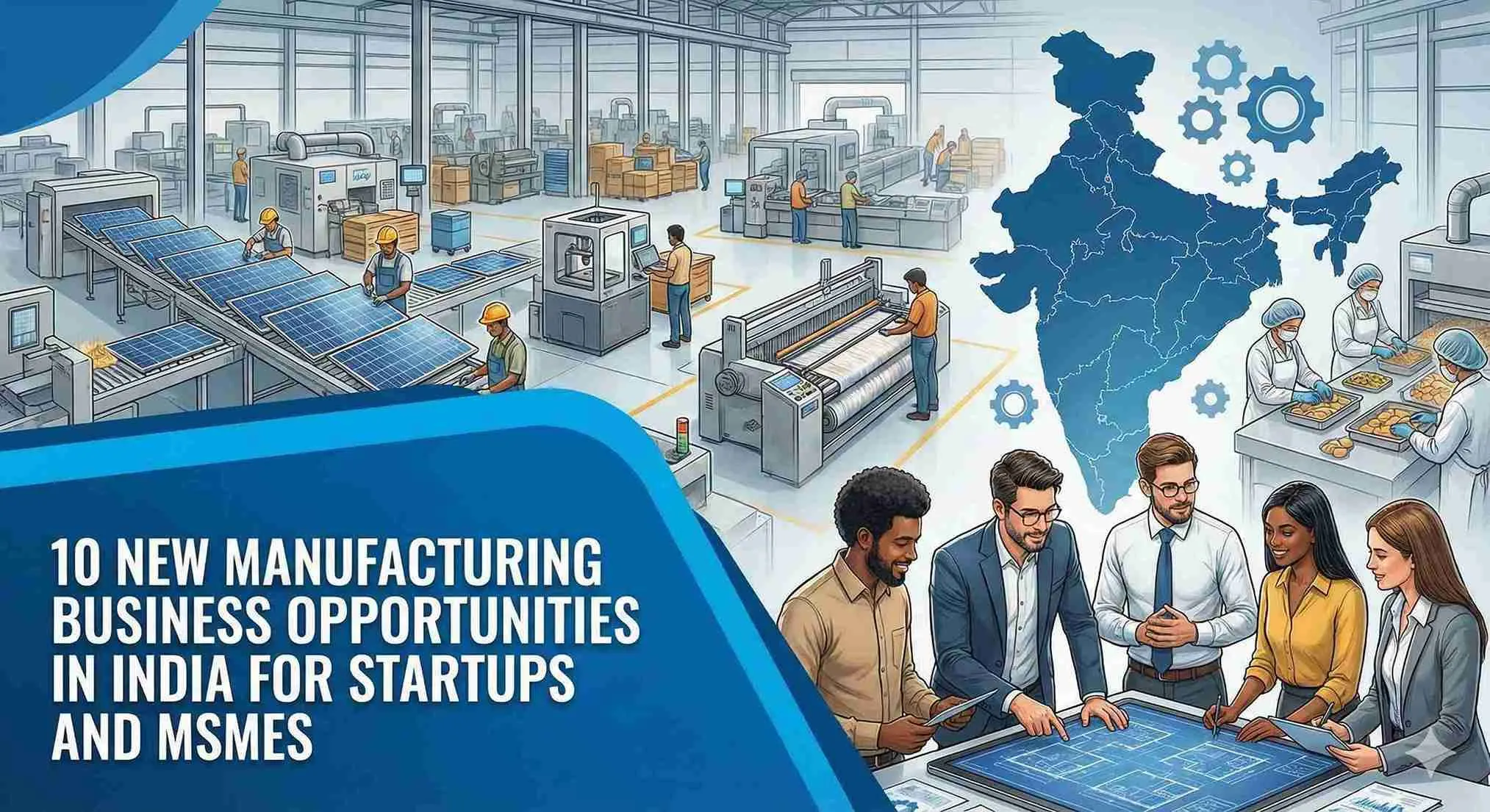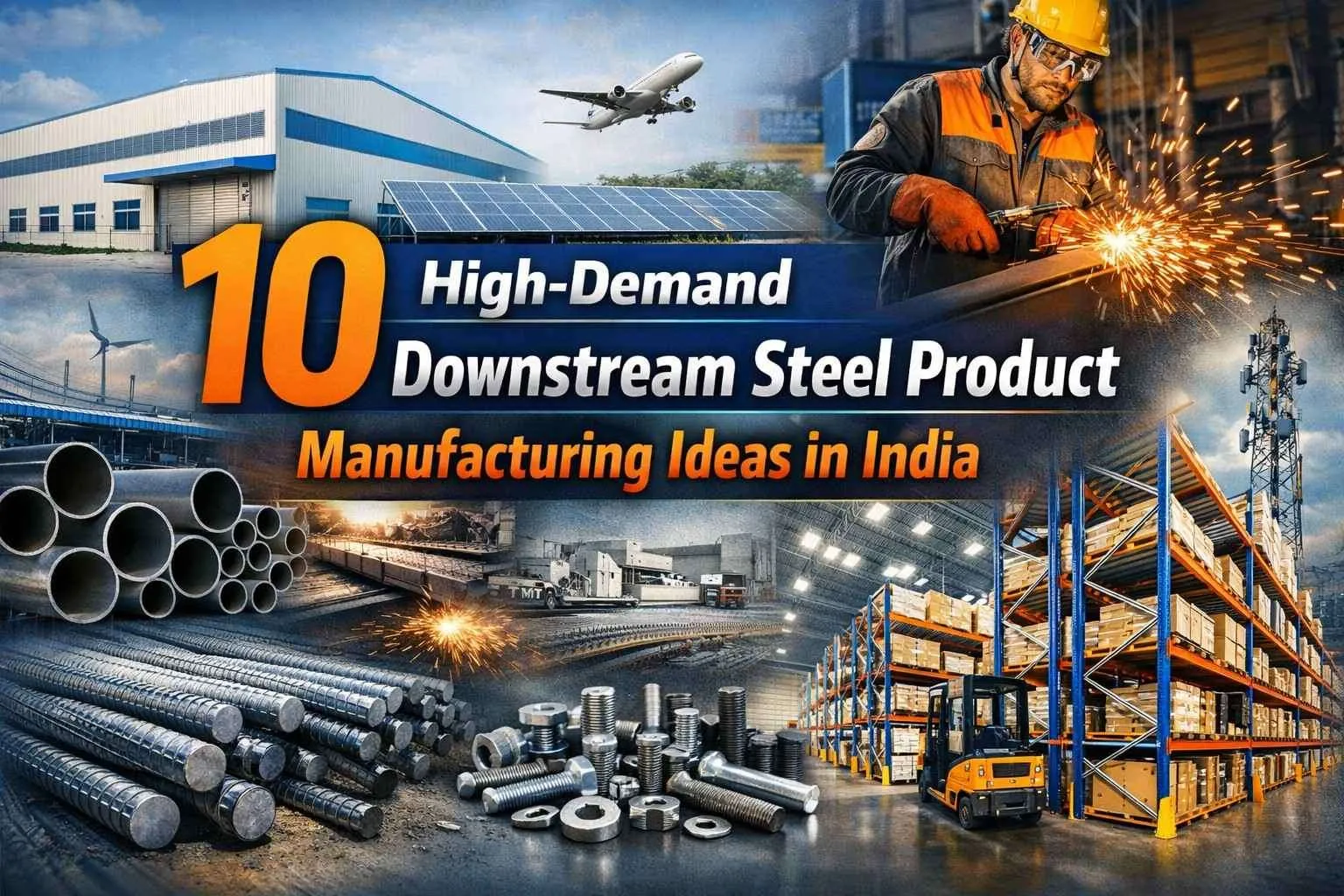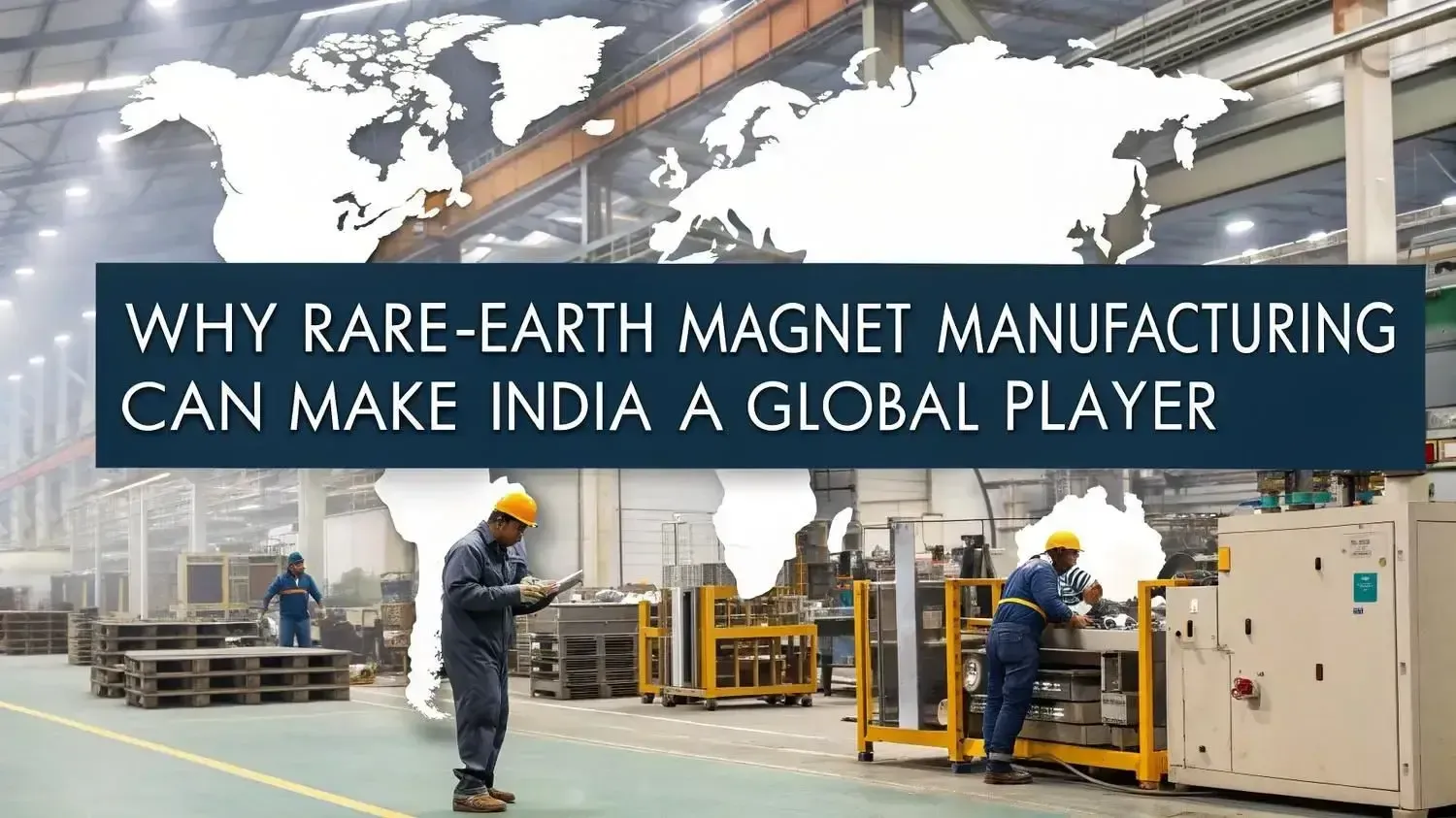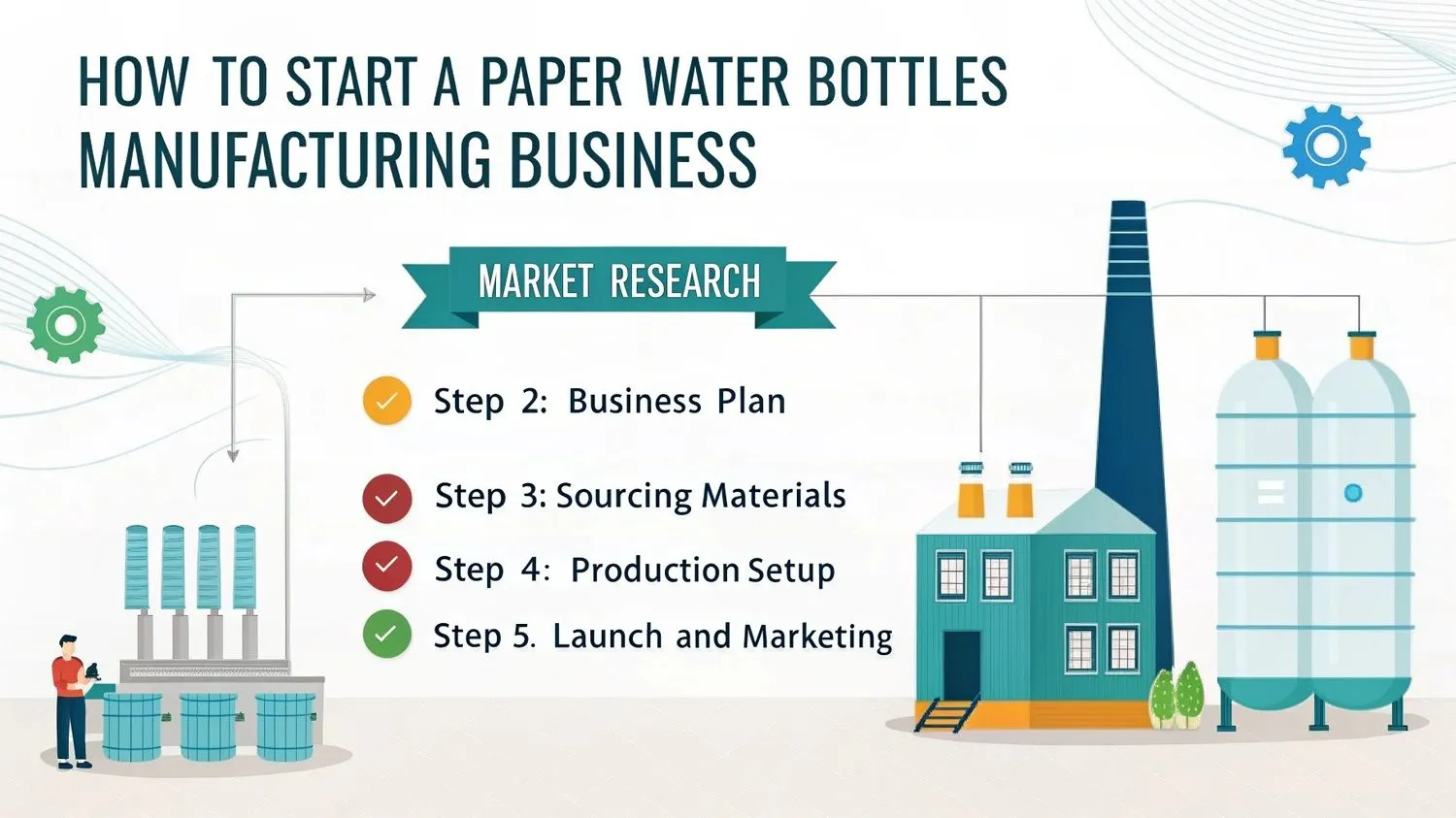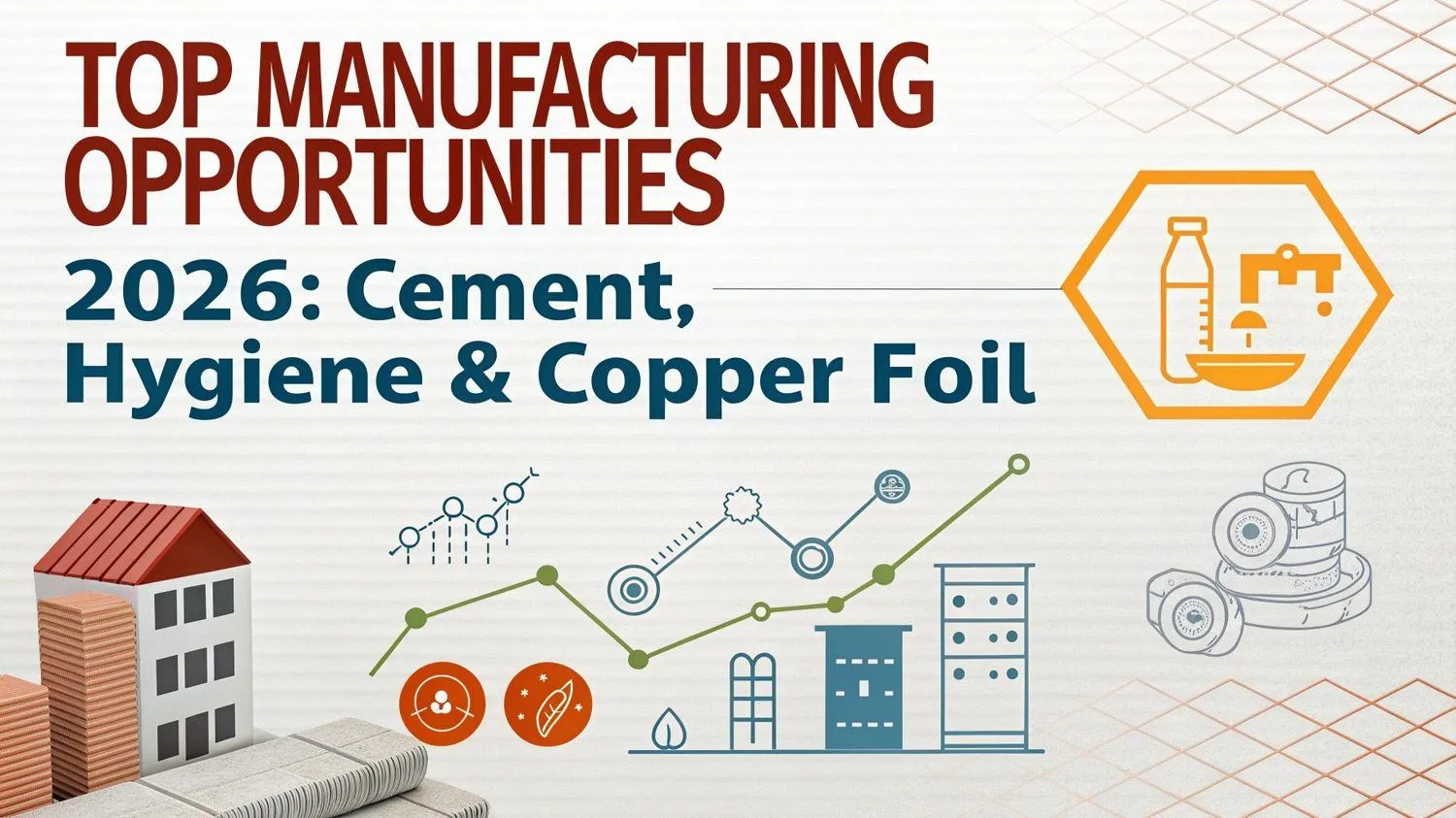As global awareness of environmental issues grows, traditional plastic products are being steadily replaced by eco-friendly alternatives. One such sustainable substitute is bioplastic, a biodegradable material derived from renewable sources like corn starch, sugarcane, or potato starch. Unlike conventional plastics, which take centuries to decompose, bioplastics break down naturally within a few months, minimizing pollution and harm to wildlife. With increasing demand across industries such as food packaging, agriculture, retail, and hospitality, launching a bioplastic manufacturing business—focusing on products like plates, glasses, and bags—presents a lucrative and future-forward opportunity.
Contents
- 1 Why Bioplastic Manufacturing is the Future
- 1.1 Key Benefits of Bioplastic Manufacturing
- 1.2 Bioplastic Manufacturing Process
- 1.3 Machinery & Equipment Required
- 1.4 Investment & Cost Breakdown
- 1.5 Legal Compliance & Certification
- 1.6 Target Market & Customer Segments
- 1.7 Marketing Strategy for Bioplastic Products
- 1.8 Challenges in Bioplastic Manufacturing
- 1.9 Future Scope and Expansion Ideas
- 1.10 Conclusion
Why Bioplastic Manufacturing is the Future
The rise of climate change concerns, single-use plastic bans, and the drive toward circular economies have made bioplastic manufacturing a high-potential sector. In India and worldwide, government policies are promoting the shift to biodegradable products. For example, India’s Plastic Waste Management Rules and extended producer responsibility (EPR) regulations are creating strong demand for eco-alternatives. Restaurants, event organizers, grocery chains, and e-commerce players are now actively seeking biodegradable tableware and packaging solutions.
Bioplastics can be produced from natural polymers like polylactic acid (PLA), polyhydroxyalkanoates (PHA), and starch blends. These materials are not only renewable but also compostable under industrial or home composting conditions. Plates and glasses made from bioplastics are sturdy and attractive, ideal for single-use scenarios. Bioplastic bags offer strength, flexibility, and environmental safety, especially as many states ban polyethylene bags.
Key Benefits of Bioplastic Manufacturing
-
Sustainability – Unlike fossil fuel-based plastics, bioplastics come from plants and emit less carbon during production and decomposition.
-
Biodegradability – Bioplastics break down naturally, reducing landfill load and ocean pollution.
-
Market Demand – Rising consumer awareness and regulation enforcement make biodegradable products increasingly preferred.
-
Innovation Scope – Bioplastic blends can be tailored for strength, flexibility, heat resistance, or clarity, depending on product requirements.
Bioplastic Manufacturing Process
To begin bioplastic manufacturing, especially for plates, glasses, and bags, entrepreneurs must understand the fundamental production process. It broadly includes:
1. Raw Material Selection
Choose feedstock like corn starch, sugarcane pulp (bagasse), or tapioca. These are processed to extract starch or sugar that is converted into biopolymers.
2. Fermentation & Polymerization
Microorganisms ferment the sugars to produce lactic acid (for PLA) or other monomers. These monomers are then polymerized to form the desired bioplastic resin.
3. Compounding
The bioplastic resin is mixed with plasticizers, natural fibers, or additives for durability, flexibility, or color.
4. Product Molding or Extrusion
-
Plates and Glasses: Thermoforming or injection molding is used to shape the material into tableware.
-
Bags: Film extrusion followed by cutting and sealing creates bioplastic carry bags or garbage liners.
5. Quality Testing
Tests are conducted for tensile strength, biodegradability rate, water resistance, and food-grade safety compliance.
6. Packaging and Distribution
Finished products are packed in eco-friendly materials and sent to distributors, wholesalers, retailers, or direct customers.
Machinery & Equipment Required
Setting up a bioplastic manufacturing unit demands specialized equipment:
-
Biopolymer reactor or fermenter
-
Extruder machine
-
Thermoforming/injection molding machines (for plates and glasses)
-
Blown film extrusion unit (for bags)
-
Bag cutting & sealing machine
-
Dryers and mixers
-
Quality control testing equipment
Small-scale units can start with semi-automatic setups, while large-scale production may require a fully automated line. Machinery costs can range from ?25 lakhs to ?2 crores, depending on scale and automation level.
Investment & Cost Breakdown
Starting a bioplastic manufacturing business in India requires moderate to high capital investment. Here’s an estimated breakdown:
-
Machinery & Setup: ?50 lakhs to ?1.5 crores
-
Raw Materials (monthly): ?5 lakhs to ?20 lakhs
-
Manpower & Operations: ?1 lakh to ?5 lakhs/month
-
Utilities & Rent: ?50,000 to ?2 lakhs/month
-
Licenses & Certifications: ?1 lakh (includes ISO, BIS, food-grade certification, etc.)
Overall, the startup cost for a mid-scale bioplastic manufacturing unit ranges between ?75 lakhs to ?2.5 crores.
Legal Compliance & Certification
For a bioplastic manufacturing business in India, key compliances include:
-
Udyam/MSME Registration
-
GST Registration
-
Pollution Control Board (PCB) Clearance
-
FSSAI License (if used for food packaging)
-
Compostability Certification – Central Pollution Control Board (CPCB) mandates certification from CIPET or other authorized labs for products marketed as compostable.
Having these certifications boosts customer confidence and ensures smooth B2B partnerships, especially with export clients or e-commerce giants.
Target Market & Customer Segments
Bioplastic products serve a wide range of industries and customer groups:
-
Event Management Firms – Require disposable plates, cups, and glasses.
-
Retailers and Grocers – Seek biodegradable carry bags.
-
Food Delivery Chains – Use eco-friendly packaging and containers.
-
Export Market – Bioplastics are in demand in Europe, Australia, and North America.
-
Government & Institutions – For eco-friendly initiatives and tenders.
B2C opportunities also exist through e-commerce platforms, eco-stores, and supermarkets.
Marketing Strategy for Bioplastic Products
To promote your bioplastic manufacturing business, a strong marketing strategy is essential:
-
Eco-Friendly Branding – Highlight biodegradability, renewable sourcing, and sustainability.
-
B2B Outreach – Target hotels, cafes, caterers, and NGOs promoting plastic alternatives.
-
Government Contracts – Bid for tenders related to Swachh Bharat or state-level sustainability drives.
-
Social Media & SEO – Leverage Instagram, LinkedIn, and YouTube to showcase product benefits, and run SEO-optimized blogs on green living.
-
Product Certification Display – Use “100% Compostable,” “Food Safe,” and other marks visibly on packaging.
Participation in expos, trade fairs, and industry events can also help build connections and customer trust.
Challenges in Bioplastic Manufacturing
While promising, bioplastic manufacturing also faces some operational and market challenges:
-
High Cost – Bioplastics can be 2–3x costlier than traditional plastic.
-
Raw Material Availability – Seasonal crops like corn or sugarcane can affect sourcing.
-
Consumer Awareness – Many end-users are unaware of composting or proper disposal.
-
Certification Process – Achieving compostable certification can be time-consuming and expensive.
Overcoming these requires efficient supply chains, pricing strategies, customer education, and sustainable packaging innovations.
Future Scope and Expansion Ideas
The bioplastics market in India is projected to grow at over 20% CAGR over the next 5 years. Entrepreneurs can expand by:
-
Introducing molded food containers, straws, or takeaway boxes
-
Developing export-quality packaging films
-
Collaborating with FMCG companies for sustainable packaging
-
Licensing composting and recycling technologies
As the Indian market matures and global demand rises, bioplastic manufacturing will play a central role in building a greener planet.
Conclusion
In conclusion, starting a bioplastic manufacturing business for plates, glasses, and bags offers a high-growth, environmentally friendly, and future-proof opportunity. With rising awareness, favorable policies, and expanding applications, this industry is ready for innovation and entrepreneurship. By investing in quality machinery, securing compliance, and tapping into eco-conscious markets, new ventures can build profitable and impactful businesses that also help combat plastic pollution.
Visit the page Select and Choose the Right Business Startup for You for sorting out the questions arising in your mind before starting any business and know which start-up you can plan.
We, at NPCS, endeavor to make business selection a simple and convenient step for any entrepreneur/startup. Our expert team, by capitalizing on its dexterity and decade’s long experience in the field, has created a list of profitable ventures for entrepreneurs who wish to diversify or venture. We update the list regularly to give you a steady stream of new emerging opportunities.





